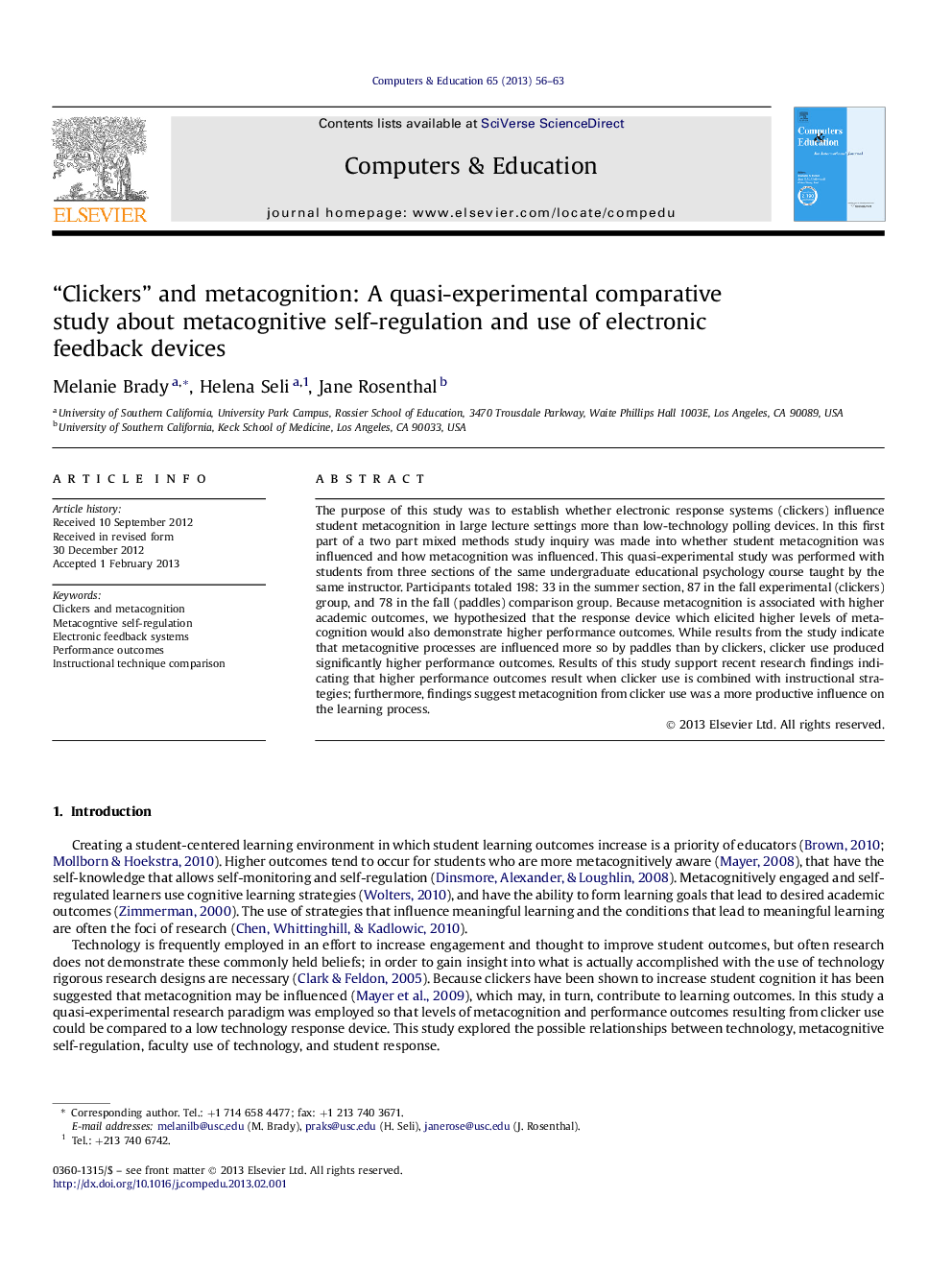| Article ID | Journal | Published Year | Pages | File Type |
|---|---|---|---|---|
| 348606 | Computers & Education | 2013 | 8 Pages |
The purpose of this study was to establish whether electronic response systems (clickers) influence student metacognition in large lecture settings more than low-technology polling devices. In this first part of a two part mixed methods study inquiry was made into whether student metacognition was influenced and how metacognition was influenced. This quasi-experimental study was performed with students from three sections of the same undergraduate educational psychology course taught by the same instructor. Participants totaled 198: 33 in the summer section, 87 in the fall experimental (clickers) group, and 78 in the fall (paddles) comparison group. Because metacognition is associated with higher academic outcomes, we hypothesized that the response device which elicited higher levels of metacognition would also demonstrate higher performance outcomes. While results from the study indicate that metacognitive processes are influenced more so by paddles than by clickers, clicker use produced significantly higher performance outcomes. Results of this study support recent research findings indicating that higher performance outcomes result when clicker use is combined with instructional strategies; furthermore, findings suggest metacognition from clicker use was a more productive influence on the learning process.
► A comparison of polling systems to measure metacognitive influence and outcomes. ► Consistently higher performance outcomes occurred with clicker use. ► Clicker use and instructional strategies produce higher outcomes. ► Higher metacognition was inconsistently associated with low technology polling. ► Metacognitive processing lead to more productive learning with clickers.
